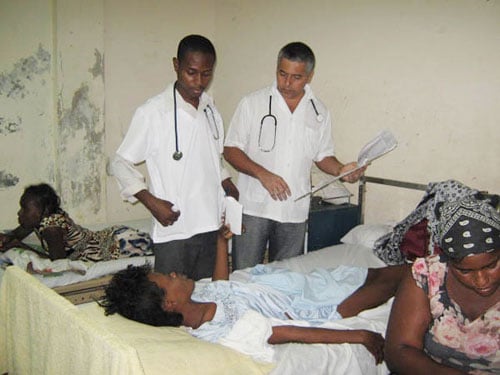Issue #2 'The Occupied Wall Street Journal' to read/download

[For more on Occupy Wall Street, click HERE.]
October 8, 2011 -- Occupy Wall Street Media -- Occupy Wall Street (#OccupyWallStreet) is the beginning of a whole new kind of democracy: a bottom-up people's democracy led by the 99%. It is a bold vision for the future that is beginning to inspire the nation. However, to pull it off, we're going to need a robust people's media unbeholden to corporate money. If we want people's democracy then we've got to build a people's media -- the two are inseparable.
Read/download 'The Occupied Wall Street Journal'

[Issue #2 NOW available. For more on Occupy Wall Street, click HERE.]
October 4, 2011 -- Occupy Wall Street Media -- Occupy Wall Street (#OccupyWallStreet) is the beginning of a whole new kind of democracy: a bottom-up people's democracy led by the 99%. It is a bold vision for the future that is beginning to inspire the nation. However, to pull it off, we're going to need a robust people's media unbeholden to corporate money. If we want people's democracy then we've got to build a people's media -- the two are inseparable.
Fact-finding delegation reports on post-earthquake Haiti

Cuban and Cuba-trained Haitian doctors at work in Haiti.
July 26, 2011 -- Canada Haiti Action Network -- Three Canadian solidarity activists conducted a 10-day fact-finding and solidarity mission to Haiti from June 20 to 30, 2011. The delegation, organised by Haiti Solidarity BC, the Vancouver affiliate of the Canada Haiti Action Network, travelled throughout the earthquake zone, including Port-au-Prince, Léogâne and Jacmel.
We visited neighbourhoods, camps of displaced people, medical centres and human rights and social organisations there to gain an overview of the most pressing needs in Haiti. During some of our visits and interviews, we were joined by other Canadians working on aid projects.

August 1, 2011 -- Monthly Review Press has kindly given permission to Links International Journal of Socialist Renewal to publish "The growth imperative of capitalism", an exclusive excerpt from Fred Magdoff and John Bellamy Foster's just released What every environmentalist needs to know about capitalism. You can download the excerpt HERE (PDF), or read it on screen below.
John Bellamy Foster will be a featured international guest at the second World at a Crossroads: Climate Change – Social Change Conference, Friday, September 30 – Monday, October 3, 2011, Melbourne University.
Greece: 20 popular fallacies concerning the debt crisis

By the Rosa Luxemburg Foundation (Germany)
July 9, 2011 -- It’s that time again! Greece needs more loans and governments in Europe are arguing about whether it’s really necessary and who should foot the bill. There is widespread opinion in Germany that Greece itself is to blame for the problems it now finds itself in. It is claimed that first of all cheated its way into the eurozone, then the government spent too much and the governed worked too little, many believe.
Latently nationalistic interpretations of this kind have been nourished by German politicians and the media, who have no end of proposals for how to "solve" the crisis. For example, the Greeks should save more, work more and sell their public property – and if all of these measures do not help, then Greece will just have to leave the eurozone or declare itself bankrupt.
The stupid thing is, neither are the causes of the crisis that have been named are correct, nor will the proposed ways out of the crisis achieve their goal.
The Rosa Luxemburg Foundation has produced Sell your islands, you bankrupt Greeks! to explain the truth about the fallacies being spread about the causes of the Greek crisis, and who is responsible.
Western economic attacks against Arab democracy

By Patrick Bond
June 1, 2011-- Rosa Luxemburg Foundation Palestine office, posted at Links International Journal of Socialist Renewal with permission -- In their latest documents and meetings, the G8, the World Bank and the International Monetary Fund (IMF) reacted to the democratic movements in the Arab world: The recipe calls – as it did before the popular ousting of the Tunisian and Egyptian presidents – for privatisation, austerity measures and “market liberation”. Patrick Bond, economic advisor to the new South African government from 1994-2002, analyses the ramifications of the economic campaign on Tunisia, Egypt, Libya and Palestine.
Washington’s seeding of the Arab democratic revolution
Thailand: Lèse majesté, the monarchy and the military

Giles Ji Ungpakorn.
By Giles Ji Ungpakorn
Paper given to Pax et Bellum, Department of Peace and Conflict Research, University of Uppsala, Sweden
April 29, 2011 -- Links International Journal of Socialist Renewal -- There is a common thread running through the political crisis in Thailand and the regional political crises that exploded earlier this year in the Middle East. In Thailand, Egypt, Tunisia and many other “developing nations”, societies had been rapidly urbanising and changing over the last 30-40 years. Yet the ruling elites and the power structures which dominatethese societies, have not changed. Different events triggered uprisings and struggles, but the underlying tensions remained the same. Another appalling common thread that links Thailand to the Middle East is the way in which ruling elites are prepared to use live ammunition against pro-democracy demonstrators in order to cling to power.


